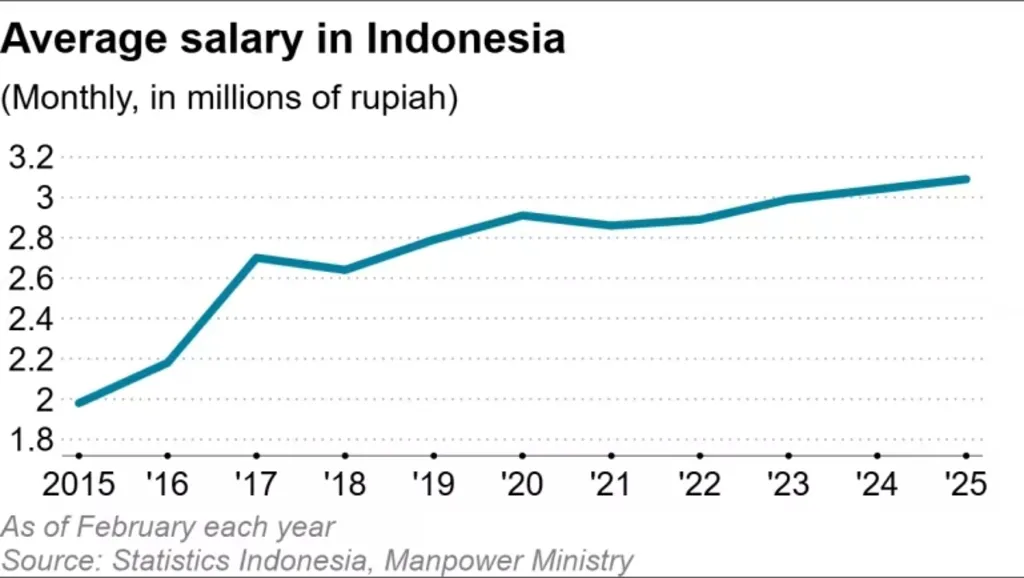Demand for AI jobs in Indonesia has jumped over 35% in just a year, according to LinkedIn. It’s a clear sign that the country’s digital economy is booming. But there’s a catch: the supply of skilled workers hasn’t kept up. This imbalance is accelerating an Indonesia Tech Skills Exodus, where top talent is lured away by international opportunities, threatening to stall innovation and limit the country's own growth.
Rising Demand, Shrinking Supply
By 2035, Indonesia is expected to need around 90 million skilled technology professionals. That’s an enormous figure, one that shows how essential digital skills have become to national progress. At the same time, 92% of companies in Indonesia already use AI in their daily operations. This rapid adoption of technology has deepened dependence on a small and shrinking pool of experts.
Companies want to move faster, but they’re running out of people who can help them do it. That’s the heart of the Indonesia tech skills exodus: a problem that goes beyond simple job numbers. It’s about capability, innovation, and staying competitive in a global digital race.
Read Also: How Global Firms Are Triggering Indonesia AI Workforce Exodus
Indonesia Tech Skills Exodus: The Economic Pull Abroad
Why are so many Indonesian engineers leaving? The answer is straightforward: opportunity. Skilled professionals working overseas, especially in technology, can earn up to six times more than they would at home. That financial gap is powerful. It pulls the best minds toward Japan, Korea, Germany, the United States, and the United Kingdom.

In 2019 alone, more than 53,000 Indonesians migrated to Japan, many of them engineers and other highly trained workers. They’re chasing both higher pay and environments that reward advanced technical skills. Meanwhile, companies in Indonesia struggle to hold on to talent that feels undervalued or underpaid.
A Growing Diaspora of Talent
The scale of the migration is striking. Around six million Indonesians now live abroad. Many are concentrated in nearby innovation hubs such as Singapore, Malaysia, and Australia. Young professionals, between 25 and 35 years old, make up a large share. They’re in their most productive years, and many are choosing to build careers overseas instead of at home.
Read Also: The Rise of Indonesia AI Talent Export Worldwide
Between 2019 and 2022, over 3,900 Indonesians became Singaporean citizens, many working in tech or digital sectors. Each represents not just one person leaving, but a small loss in Indonesia’s capacity to innovate locally.
The trend has global recognition. On the Human Flight and Brain Drain Index 2024, Indonesia ranks 88th out of 175 countries. The data points to a worrying pattern: a steady outflow of skilled minds and future innovators.
Companies Fight to Keep Their Engineers
Major players like GoTo and BCA are responding with new training and retention programs. They’re investing heavily in developing local engineers and giving them better reasons to stay. But even with such efforts, Indonesia Tech Skills Exodus remains. Global demand for Southeast Asian tech professionals is rising, and Indonesia’s talent pool is one of the most sought-after in the region.
As long as the salary gap and career opportunities abroad remain wider, companies will continue to lose top engineers. It’s a fight not just for employees, but for the country’s future capacity to compete in high-tech industries.
What Indonesia Tech Skills Exodus Means for The Nation
The Indonesia tech skills exodus is a signal. It tells us that Indonesia’s digital transformation is outpacing its ability to nurture and retain its builders. Every engineer who leaves takes knowledge, creativity, and experience with them. If the trend continues, the nation could face slower innovation, weaker competitiveness, and deeper dependence on foreign expertise. The challenge now is clear: Indonesia must not only produce more skilled tech workers but also make staying home just as rewarding as leaving.







